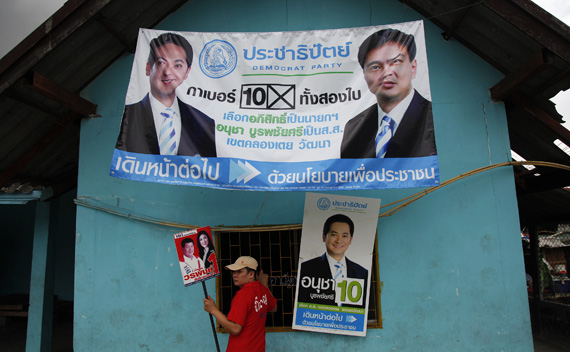What will the U.S. Reaction Be to Thailand’s Election?
More on:

In the run up to Thailand’s national elections on July 3, most U.S. officials have said very little about the country and its poll. At recent events, for example, Assistant Secretary of State Kurt Campbell has tended to brush over discussions of Thailand before going on to emphasize the United States’ other treaty allies and close partners in Southeast Asia, such as Singapore, the Philippines, and Vietnam.
That is probably a wise move – for now. As Bangkok Pundit notes, though polls suggest that the opposition Puea Thai party is likely to win, and possibly with a large majority. Thai polls are notoriously unreliable, so the Democrat Party and their smaller party partners could still pull off enough of a victory that would allow the Democrats to put together a ruling coalition in parliament.
Still, after the election, the U.S. is not going to be able to simply defer talking about Thailand any more. Washington will need to have a clear policy if the military steps in again, as army commander in chief Prayuth Chan-Ocha already has obliquely warned in public statements. Unlike in 2006, the U.S. cannot this time even tacitly tolerate a coup, since the Thai military already has shown, in 2006 and 2007, that a coup will only set back the country’s economy and democratic progress badly. A coup this time should result in suspension of future Cobra Gold U.S.-Thai joint military exercises, and should result in the kind of harsh condemnation of the military’s actions that the U.S. would deliver in the case of nearly any other country. Though some American analysts worry that such a condemnation would push Thailand closer to China, that’s a risk that – at this point – is probably worth taking, given that the Thai government still cannot rely upon Beijing for much of its military needs.
What’s more, the administration should be prepared to warn Puea Thai, as well, if it wins the election and immediately tries to use a mandate to launch its own cycle of recriminations against the judges, bureaucrats, and army officers it believes have made life tough for Thaksin supporters over the past five years. After the poll, no matter what the result, Thailand will need some kind of cooling down period, and a new cycle of recriminations would hardly help lower the temperature.
More on:
 Online Store
Online Store